For the 2025 school year, there is 1 public elementary school serving 294 students in Akron School District No. R-1. This district's average elementary testing ranking is 5/10, which is in the bottom 50% of public elementary schools in Colorado.
Public Elementary School in Akron School District No. R-1 have an average math proficiency score of 27% (versus the Colorado public elementary school average of 32%), and reading proficiency score of 32% (versus the 43% statewide average).
Minority enrollment is 30% of the student body (majority Hispanic), which is less than the Colorado public elementary school average of 50% (majority Hispanic).
Overview
This School District
This State (CO)
# Schools
2 Schools
1,473 Schools
# Students
415 Students
601,879 Students
# Teachers
36 Teachers
38,351 Teachers
Student : Teacher Ratio
12:1
12:1
District Rank
Akron School District No. R-1, which is ranked within the bottom 50% of all 179 school districts in Colorado (based off of combined math and reading proficiency testing data) for the 2021-2022 school year.
The school district's graduation rate of 80% has decreased from 80-89% over five school years.
Overall District Rank
#99 out of 179 school districts
(Bottom 50%)
(Bottom 50%)
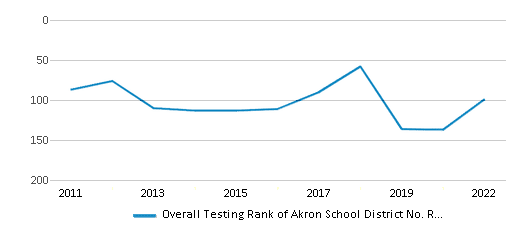
Math Test Scores (% Proficient)
25-29%
32%
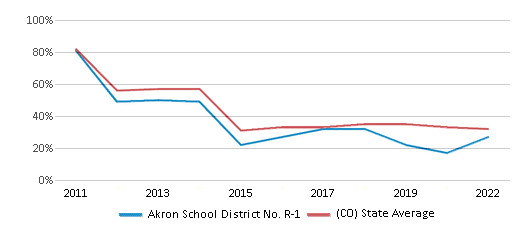
Reading/Language Arts Test Scores (% Proficient)
30-34%
45%
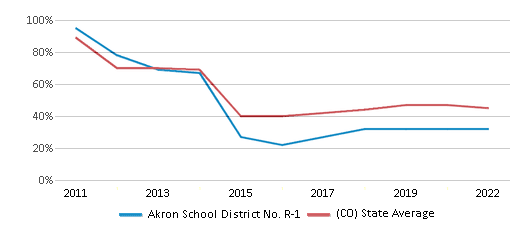
Science Test Scores (% Proficient)
(20-21)11-19%
29%
Graduation Rate
≥80%
82%
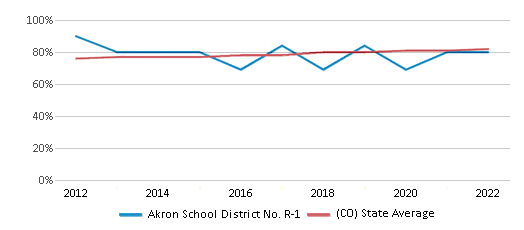
Students by Ethnicity:
Diversity Score
0.45
0.62
# American Indian Students
4 Students
3,555 Students
% American Indian Students
1%
1%
# Asian Students
2 Students
20,679 Students
% Asian Students
n/a
3%
# Hispanic Students
98 Students
213,411 Students
% Hispanic Students
24%
35%
# Black Students
3 Students
27,900 Students
% Black Students
1%
5%
# White Students
293 Students
300,798 Students
% White Students
70%
50%
# Hawaiian Students
n/a
2,111 Students
% Hawaiian Students
n/a
n/a
# Two or more races Students
15 Students
33,263 Students
% of Two or more races Students
4%
6%
Students by Grade:
# Students in PK Grade:
16
25,359
# Students in K Grade:
20
57,183
# Students in 1st Grade:
31
59,805
# Students in 2nd Grade:
32
62,964
# Students in 3rd Grade:
27
60,979
# Students in 4th Grade:
33
62,174
# Students in 5th Grade:
25
62,162
# Students in 6th Grade:
37
62,153
# Students in 7th Grade:
44
58,727
# Students in 8th Grade:
29
59,502
# Students in 9th Grade:
37
7,556
# Students in 10th Grade:
27
7,626
# Students in 11th Grade:
29
7,365
# Students in 12th Grade:
28
8,324
# Ungraded Students:
-
-
District Revenue and Spending
The revenue/student of $14,340 in this school district is less than the state median of $15,473. The school district revenue/student has declined by 5% over four school years.
The school district's spending/student of $13,680 is less than the state median of $15,791. The school district spending/student has declined by 5% over four school years.
Total Revenue
$6 MM
$13,426 MM
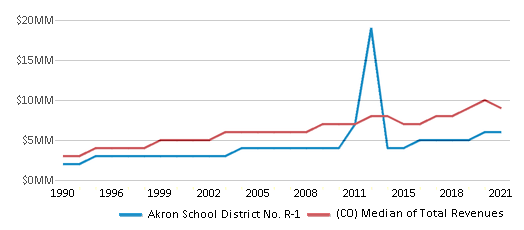
Spending
$6 MM
$13,702 MM
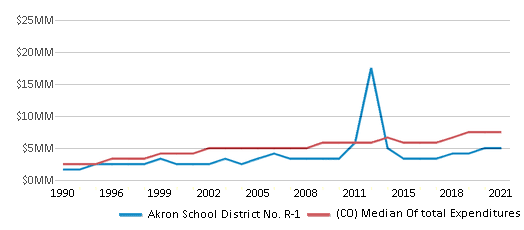
Revenue / Student
$14,340
$15,473
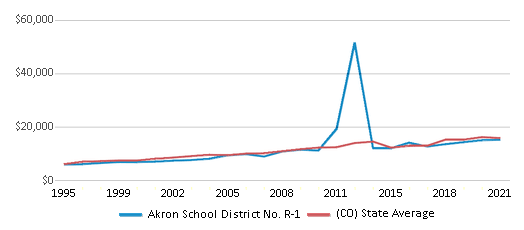
Spending / Student
$13,680
$15,791
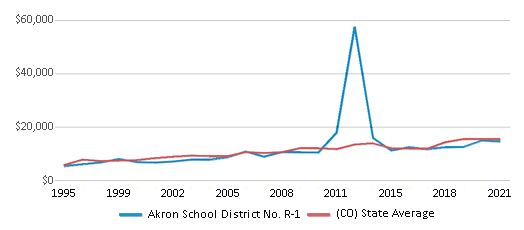
Best Akron School District No. R-1 Public Elementary Schools (2025)
School
(Math and Reading Proficiency)
(Math and Reading Proficiency)
Location
Grades
Students
Rank: #11.
Akron Elementary School
(Math: 25-29% | Reading: 30-34%)
Rank:
Rank:
5/
Bottom 50%10
600 Elm Avenue
Akron, CO 80720
(970) 345-2266
Akron, CO 80720
(970) 345-2266
Grades: PK-8
| 294 students
Recent Articles

Sexual Harassment at Age 6: The Tale of a First Grade Suspension
A six-year old in Aurora, Colorado, was suspended after singing an LMFAO song to a little girl in his class and reportedly “shaking his booty.” We look at the case and the sexual harassment problem in public schools today.

How Scaffolding Could Change the Way Your Child Learns
This article explores the concept of instructional scaffolding, a teaching method that enhances learning by breaking down complex tasks into manageable parts. It highlights how scaffolding supports students in developing critical thinking skills and becoming more independent learners. The article discusses the benefits of scaffolding, including improved engagement and reduced anxiety, and provides strategies for its implementation across various educational levels.

February 05, 2025
Understanding the U.S. Department of Education: Structure, Impact, and EvolutionWe explore how the Department of Education shapes American education, from its cabinet-level leadership to its impact on millions of students, written for general audiences seeking clarity on this vital institution.





